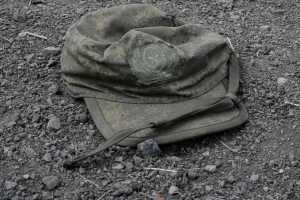
The New York Times names possible directions of further Ukrainian Armed Forces offensive
After the liberation of Kherson, Ukrainian Armed Forces can continue their offensive in the direction of Melitopol in Zaporizhia region as well as in Donbas
The New York Times writes about it.
American publication notes that there are currently no signs that Ukrainian military will stop counteroffensive after liberation of Kherson.
The NYT notes that many analysts and diplomats had speculated that there might be a pause in hostilities in winter, but with Russians fleeing Kherson, Ukraine has no desire to let the war stall.
According to NYT sources among military, there are more and more signs that Ukraine is preparing for a new offensive. In particular, it can happen in the Zaporizhzhia region in the direction of occupied Melitopol.
"Ukraine's next targets will most likely be either in direction of Melitopol in the south or in the East, continuing offensive that drove Russian troops out of Kharkiv region to recapture Svatove in Luhansk region, which has been the center of hostilities for the past month", the article says.
Andriy Mikheichenko, senior lieutenant, commander of an anti-tank unit defending Bakhmut in Donetsk region, told the journalists that the logic of war does not allow Ukrainian Armed Forces to stop.
"The logic of war is not to pause, but to somehow continue moving forward. I think there will be counterattacks in other directions, so that the enemy does not have time to transfer reserves and block strikes", Mikheichenko said.
Analysts note that Ukraine is wary of taking a break, as it is sure that Russia is using it to gain a foothold in the occupied territories. Other experts predict that full-scale fighting could subside in winter and resume in spring.
However, they agree that the next stage of war will be extremely brutal.
"War will not stop in winter. But the fight will be fought at a different tempo. And it gives political and military leaders an opportunity to plan for what is likely to be a brutal and bloody year", retired Australian Army Major General Mick Ryan suggested.
- News














































